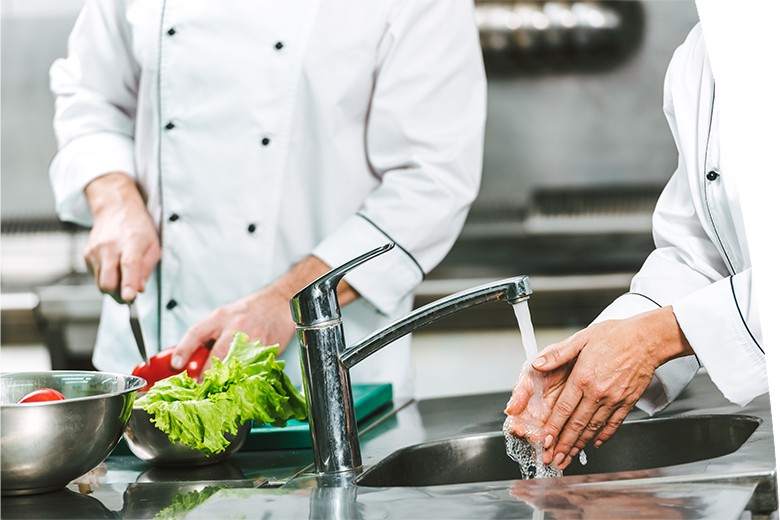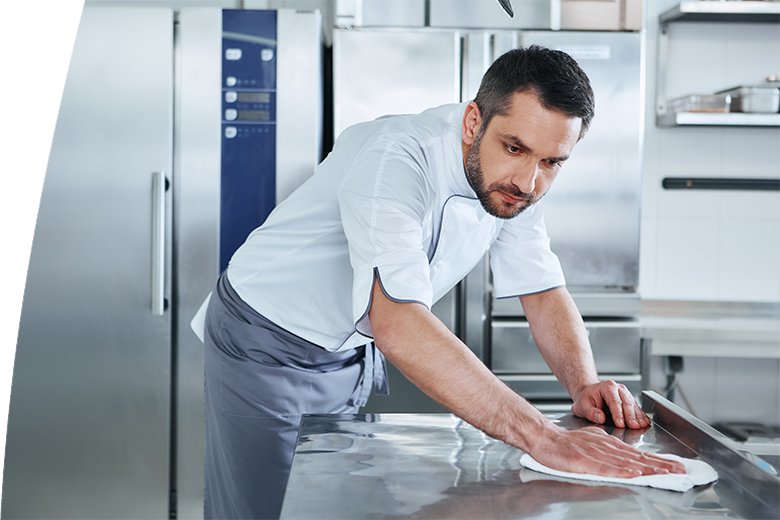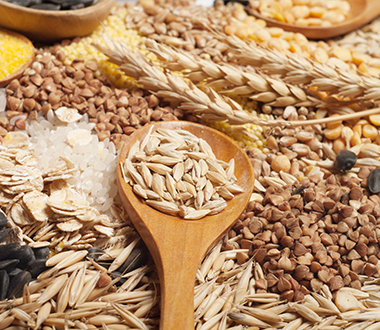The need for increased kitchen hygiene in catering establishments during summer

During summer months, catering establishments face greater difficulties in maintaining kitchen hygiene. Higher temperatures and increased humidity create an ideal environment for the growth of bacteria and other pathogens that can lead to various illnesses. Ensuring strict hygiene practices in the kitchen is essential to protect the health of employees and also customers, maintain the reputation of the business and comply with health regulations. In our article you will find tips on how to perform this.
-
Pay attention to appropriate temperature
Bacteria such as Salmonella, E. coli and Listeria thrive in warm conditions. Summer temperatures can accelerate the growth of bacteria, especially in durable food. Therefore, you should choose an appropriate temperature in both your kitchen and refrigeration appliances.
Check your refrigeration units more often during the summer season. In summer, they work more intensively to maintain cool temperatures, which can lead to breakdowns or less efficient cooling and that can compromise food safety.
-
Watch out for increased incidence of pests
Flies, ants and other pests occur more commonly in summer. That can mean a significant risk of contamination. Warmer weather can also increase the activity of rodents and they can be transmitters of diseases. Therefore, pay attention to daily checking of their presence.
-
Personal hygiene
Higher temperatures can lead to increased sweating of the staff leading to food contamination if proper hygiene procedures are not followed. Therefore, you should ensure that every staff member has regular breaks to cool down and rest, as prolonged exposure to heat can cause fatigue and errors in carrying out their work.
Basic hygiene procedures
- Regular monitoring: Perform regular checking of the refrigerator and freezer temperatures to make sure they are working correctly. Record these temperatures in a notebook and keep them for accountability and possible hygiene checks.
- Proper storage: Make sure perishable food items are stored quickly and properly. Use ice packs or portable refrigerators for items that may be temporarily out of the cool environment.
- Frequent disinfection of surfaces: Increase the frequency of wiping surfaces with kitchen wipes and sanitize them frequently. Use appropriate disinfectants and ensure that cutting boards, worktops and tools are cleaned thoroughly.

- Cleaning: Regularly check and clean kitchen equipment, especially those used for food preparation and storage. Make sure they are working properly and hygienically.
- Preventive measures against pests: Seal any gaps or openings through which pests can enter the kitchen. Use screen nets on windows and doors and make sure containers for waste are tightly closed. If necessary, make use of professional pest control services.
- Correct staff hygiene: Stress the importance of regular and proper hand washing. If necessary, install additional handwashing stations and ensure adequate supplies of soap and hand sanitizer. Also ensure that employees wear appropriate protective clothing, including hairnets, gloves and aprons. Change uniforms on a regular basis and provide adequate facilities for the staff to change and store their personal belongings.

By implementing strict hygiene practices, regular staff training and proactive measures, you can protect your customers and employees from foodborne illnesses. Efforts made to maintain high standards of cleanliness not only comply with health regulations, but also reinforce a business's commitment to quality and safety, it enhances its reputation and customer confidence.
Don't forget to subscribe to our newsletter to get more hints and advice from different areas of the business environment.



